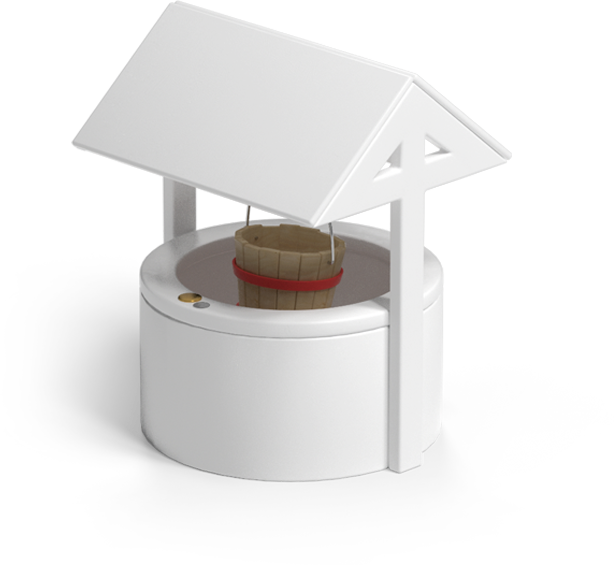How Long Does It Take To Earn Money As A Buy-To-Let Landlord?
Becoming a private landlord for the first time can be a stressful and protracted process. We look at what it takes to go from a desire to be a private landlord through to becoming one for the first time. We then see how this measures up against property cordfunding with UOWN.
By Jon Howe6/12/20

Private renting has become a boom industry in recent years, it is now far easier for relatively unskilled or inexperienced individuals to become a private landlord. Your motivation for doing so doesn’t affect the process you have to go through, however. So whether you are simply wanting a modest second income, have an eye on a part-time career that could develop, or you want to become a full-time professional landlord with designs on owning an impressive property portfolio, the route to earning money is laced with the same pitfalls and obstacles and takes the same length of time.
Owner-occupiers will always dominate the property market, but private landlords are becoming more commonplace as there are different niche markets within the rental sector, such as short term lets, HMOs and students. This gives private landlords plenty of scope to earn money, but of course it isn’t quite as simple as that.
Can I become a private landlord?
If you are thinking of becoming a private landlord, the ease of the path towards potential riches very much depends on your individual circumstances. There are many hurdles to navigate before you start earning money, or a rental yield, and before you can build-up the kind of capital that could either provide a nice little retirement nest egg, acquire money for your children as they begin university or allow you to procure a second house to build up your property empire.
Having a long term vision is critical before you enter the rental property market, and you need extreme clarity in what you want out of it. Timing is crucial in terms of when you need money and can release funds, and how you can steer through periods where there is no income or you are faced with more significant short term costs. The lifeblood of your venture depends on this, regardless of in which capacity you are approaching the rental market, and of course there are ways, through UOWN’s property crowdfunding venture for example, where the route towards earning income through property can be significantly speeded up.
But first let’s understand a little more about what the process towards becoming a private landlord involves, and also have a look at the time it takes to start from scratch and undertake all the regulation tasks, stages and barriers to actually earning income in the private rental sector.
Preparing to become a private landlord
The first stage of becoming a private landlord is really the make or break stage, and that is the months and possibly years you spend working out if you can actually do it. At this point there is a lot to consider. What kind of mortgage can you handle? You will typically need at least a 20% deposit, can you afford this right now or can you save for it? You will also need a business plan, which will need to include what sector of the rental market you intend to target. So is this realistic and viable?
Do you intend to manage the property yourself or use a letting agent? This immediately impacts on your expected income. What is your attitude to risk? Do you want to earn from rental income alone, or do you want to find a property that will likely also appreciate in value? This presents a whole new ball game within the rental sector and can be very lucrative, but also of course is more difficult to judge. Is this a good time to invest in property in terms of interest rates? What are the current stamp duty rules?Does that impact on your earning potential, given the property sector you are aiming at?
When you have considered all of this and decided you can make a genuine fist of it, then you are ready to go.
Viewing properties
Of course entering a certain sector of the property market involves considering three separate factors; the type of tenant, the type of property and the type of area. Marrying all these together to find a specific property that you want can take a great deal of time and patience, and is largely dictated by the financial advice you have already received, with regards to the feasibility of your business plan and your mortgage expectations.
So you need to consider whether an area is attractive to your target tenant and whether a property within that will also suit. A young family will want a property with plenty of space and sufficient bedrooms, with a garden and with good access to shops, parks, transport and schools. Students will want a locality to the university and good nightlife and won’t be too fussy about the property, while young professionals on a short term let might just want a place to rest their head in the centre of town, near their work and aren’t too fussy about trappings such as en-suites, conservatories and gardens.
You might have heard about some property developments that sound absolutely perfect and are in exactly the right area, but they won’t be complete and on the market for another nine months. So you have to take good advice and weigh up whether it is worth waiting. You might have found the right property in the right area for your target tenant, but it needs investment in refurbishment. Does the cost of the work required justify the expected returns, and can you afford to carry the cost of the works and the delay in rental income?
It typically takes one to two months of suitably intense searching to find the right property that ticks every box and suits your short and long term visions, but whether it arrives at the right time in terms of market conditions, is entirely out of your control. You can’t afford to get this first step wrong and it is the fundamental basis to your overall game plan. In that respect you should avoid putting internal deadlines or personal timescales on the viewing process as that could pressure you into making the wrong decision, but at the same time, only your individual circumstances can dictate how long you can afford to wait.
The buying process
Once you have found a suitable property, a lot can happen very quickly. The process of buying a house can face a number of different delays, some of which are unforeseen, but most of which are just the natural way of things. Making an offer on a property and verbally negotiating a deal can be done very quickly, sometimes in an afternoon. It would make sense for you to make it clear that you are not involved in a chain as that gives a buy-to-let landlord some negotiating leverage and can be attractive to a seller. On the other hand, such transactions are often one landlord selling to another, so that advantage becomes somewhat lost.
As soon as your offer is accepted by the seller it can take roughly six to ten weeks for the house-buying process to move to completion, but of course many of the activities within this can be continuing concurrently.
You need to find a suitable mortgage and agree a deal with the lender, this in itself can take around four weeks. The mortgage lender will insist on certain building surveys taking place, which can be arranged and carried out within a week, but can present some structural or infrastructure issues with the property that either need to be dealt with physically or can influence the agreed purchase price. This all takes time when you are communicating through solicitors who haven’t necessarily got your preferred timescale uppermost in their minds.
While surveys are being conducted, your solicitor should be carrying out property searches to ensure everything is in order and there are no complications with structural or land ownership, title deeds or boundaries.You will most likely feel out of the loop at this stage and there is little you can do to speed the process up other than provide everything you are asked for.Your solicitor will also be communicating with the seller’s solicitors and drawing up contracts ready for exchange. At this point you will need to have your deposit ready to pay, so you should be prepared for this and ensure you can release the funds exactly when you need to, and also factor in that the money may take a few days to clear.
Completing the sale
The period of time between exchanging contracts and completing on the property purchase is usually only about a week, this is to allow for mortgage formalities to be completed, new title deeds to be drawn up and for the current occupiers to move out. Of course with many rental properties, there will be no occupants, so you will potentially receive the keys a matter of days after exchanging contracts. This gives you time to carryout any refurbishments and to get the property in a condition where it is suitable for putting on the market for tenants. Naturally this will vary from a week to several months depending on the nature of the property you have bought and what standard you want to refurbish it to, and again, this is very much market-dependent.
Finding tenants
You can begin the process of finding tenants while the property sale is going through, but only to an extent. You can consider where you can find a tenant and prepare for which mediums you would use to advertise property or room availability, but until the sale is complete and the property ready for occupation, you can’t advertise for tenants.
In addition, you will need to work with your solicitors to prepare contracts or tenancy agreements. You will also need to set up and understand your tax responsibilities, apply to get on the national landlords register, furnish and decorate the property, ensure you have an EnvironmentalPerformance Certificate with a suitable grade and carry out all health and safety obligations with regards to gas, carbon monoxide, electrical testing, security and alarms.
This interim period can take up to one month, from legally owning the property to having it ready for tenants and being able to actually find some. Even then it can be difficult to find suitable tenants, and it is difficult to put a timescale on the period of time it takes for your property to attract the people you want it to.
If you are renting to students then you need the property available to coincide with term times, while other types of tenant don’t have such constraints, but typically, people don’t want to be moving into a property at the end of the year or during the summer holidays. You also need to allow time to arrange viewings, negotiate tenancy terms in accordance with current market rates, agree contracts and arrange deposits and to follow up and check references for the tenants. An experienced landlord can have all this ready, prepared and done within a few days, but in your first attempt it can take one to two weeks to complete these formalities even after you have found suitable occupants for all the available rooms in the property.
Earning returns
This depends on the details of your tenancy agreement, most tenants pay their rent on a monthly basis, but it is not simply a case of this income immediately going into your pocket. There will be outstanding costs and legal fees from the purchase, renovation and furnishing of the house that will eat into your immediate profits, perhaps for as long as the first six months.
You will also possibly have to pay a fee for advertising for tenants, as well as a management fee if you have arranged for a letting agent to run the property for you. Even if you are taking on the property yourself, you will face maintenance and running costs each month, in addition to your tax obligations and mortgage payments.
While some of these costs will be ongoing, it may take sometime before the rental income more than offsets the set-up and running costs and you begin to earn money from your venture. Extreme patience and composure is needed in these difficult times, in order to stay focused on your immediate goals, as well as your long term ambitions of earning from the property.
Earning returns with UOWN
Property is one of the most consistent, reliable and rewarding ways to invest your money, but there are factors within it that can cause difficulties to individuals, as we have highlighted above. However, there are various investment vehicles that can perhaps provide more lucrative returns but against a backdrop of higher risk, or there is property crowdfunding through UOWN, which removes all the frustrations, complications, delays and obstacles of the private rental market and offers you instant returns.
Whatever your motivation for wanting to get involved in the private rental market, UOWN’s investment vehicle allows you to do that, whilst promoting equality and democracy. So however much or little you invest you are treated the same.
Perhaps most importantly in the context of this article, there are no viewings, no contracts, no solicitors, no gazumping and no renovation costs, just instant returns at the click of a button. You are earning from the second you invest and receiving that money every month, and you can sell your shares easily or reinvest your money to compound your return.
UOWN’s crowdfunding platform is a great way to enter the property rental market even if you still want to follow your path to owning several properties yourself. There is a lot to be said for earning money instantly, and it can allow you to do many things, so put the power back in your own hands.
Take a look at our other articles




